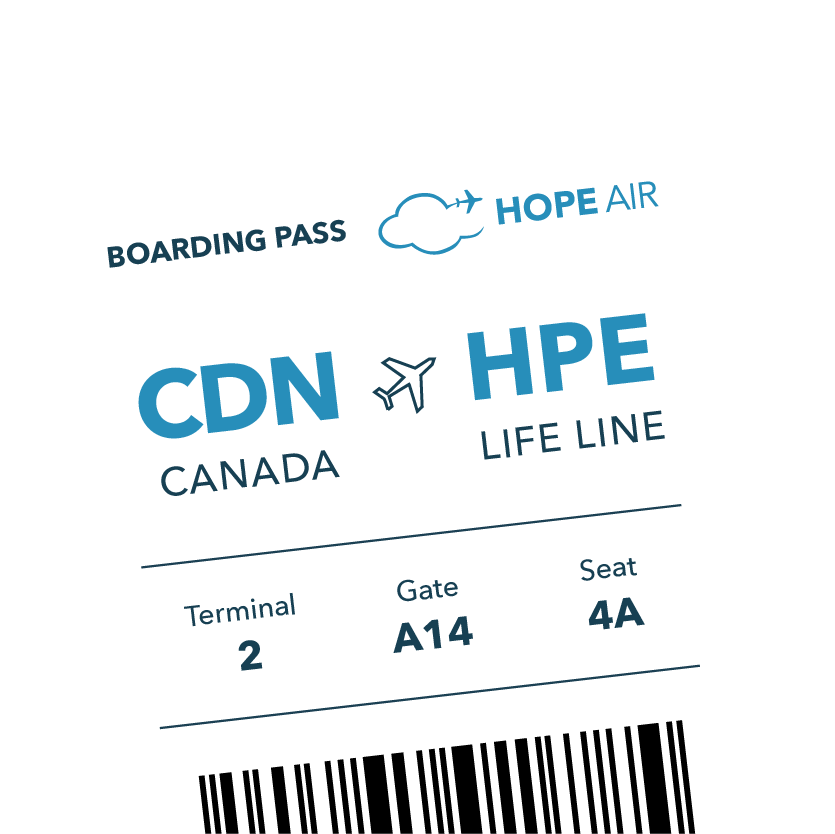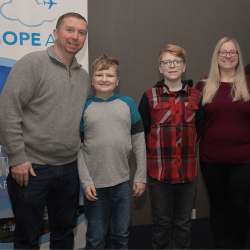Six years ago, Hope Air shared Jayden and Logan’s journey with the community. We are excited to have reconnected with their mother, Cindy, to find out how they are doing 10 years into their journey with Hope Air!
In 2012 brothers Logan and Jayden began their journey flying with Hope Air for an extremely rare immune system disorder.
Logan and Jayden, and parents Cindy and Corey have been travelling from St. John’s to SickKids Hospital in Toronto for specialized visits for Severe Combined Immune Deficiency (or SCID).
When Logan was just over a year old, he started getting sick often and was repeatedly admitted to the hospital in his hometown of St. John’s. After several tests and travel to Toronto, the family received Logan’s Severe Combined Immune Deficiency diagnosis, which led to a 16-month stay.
Logan was placed in isolation to keep him away from the germs that could make him ill and doctors decided that a bone marrow transplant would be the best course of treatment to allow Logan to live life as a normal kid.
As a preventative measure, the rest of the family was tested and it was found that Jayden, Logan’s older brother, also had SCID but never showed symptoms.
Jayden and dad, Corey, moved to Toronto to be with Logan and Cindy while they waited for a bone marrow donor match. Because Logan had to be kept in his isolated room, Jayden couldn’t play with his brother for months, and could only wave to him through the hospital windows.
Five months later Logan received a bone marrow transplant in August 2012. He was discharged from the hospital a month later with a catch, the family of four would have to travel to Toronto for frequent follow up. The family had flown to Toronto on their own previously, but the prospect of flying the whole family back and forth so frequently was intimidating.
Cindy and Corey had been off work to care for their sons, meaning there was no room in the budget to have the family make regular trips to Logan and Jayden’s appointments. “It was impossible – there was no way we could commit to that schedule,” says Cindy.
Then, they found Hope Air and began travelling through free flights in 2012, providing major relief ensuring that the family could stay at home in Newfoundland, together.
“We would have had to move to Toronto and without support from our friends and family,” says Cindy, “it really helped our mental health and well-being to have our support system close at home [in St. John’s].”
Three years ago, in 2019, Jayden had to have his bone marrow transplant, but with flights from Hope Air, the journey was less daunting.
Both boys are in junior high school and enjoy playing baseball in the summer months. Despite some complications, they are doing well. Logan, now 11, is all about hockey and the Montreal Canadians while Jayden, now 13, is into gaming and exploring digital drawing on his tablet.
While their travel to and from Toronto has been paused due to the pandemic, the family will require more visits to SickKids hospital in the future and are grateful Hope Air will be a part of their journey.

